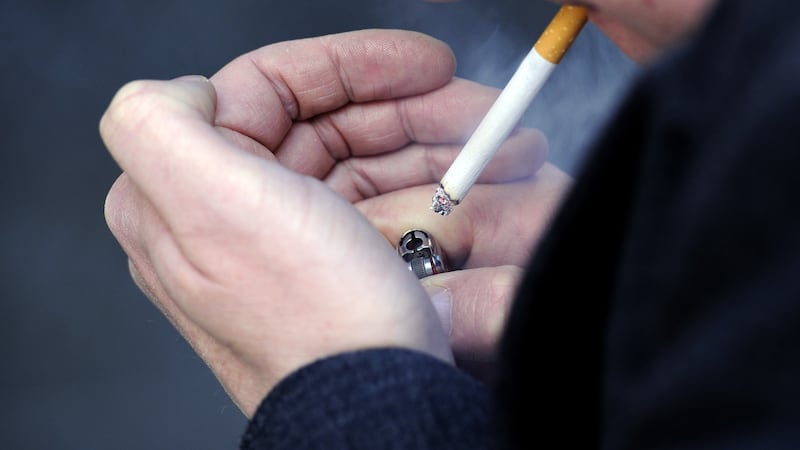The controversy about the RIC has been depressing and few have come out of this well.
I have always envied people who are so certain of their beliefs. Like the old westerns – the baddies wore black hats and the goodies naturally, wore white hats.
But a reality check is needed? Anyone who served in the RIC, disbanded 98 years ago, is now long dead, just as anyone who knew them.
Surely after 100 years a dispassionate, if not compassionate, perspective is long overdue? A key question must surely be, if we can’t accept the past, what chance do we have for the future?
One must assume that most people accept the principle of the rule of law and the need to enforce it in a civilised society?
For example, the need to drive on the left-hand side of the road rather than indulge in the right to choose, depending what side of the bed one got out that morning. If one moves from civil to criminal law, can fellow citizens expect protection from injury, if so from whom?
Looking back to Ireland’s war of independence, perhaps the first example of asymmetric warfare, legend records that Michael Collins fought in plain sight. Collins apparently criss-crossed Dublin on a bike, leaving mayhem and destruction in his wake. Indeed Collins was so anonymous that repeatedly he evaded capture.
Did it not occur to all those myth-makers that most of the time many RIC officers knew exactly who he was and his whereabouts? But instead of arresting him they would speed him on his way, with a nod and a wink.
I am sure some RIC officers did behave badly, but that doesn’t mean that every day the great majority did not do their best for kith and kin, as they saw it.
Even with the distance of time it still seems easier to sloganise and troll politicians who know how complicated the truth can be.
Speaking of westerns, one ended with the line “when the legend becomes fact, print the legend”. That was fiction. In 2020 can Irish republicanism cope with truth and its history? If not now, when?
FRANK HENNESSEY
Belfast BT9
Commemoration event for RIC could not be more inappropriate
One acknowledges that those who recently organised the event to honour members of the RIC were well-meaning.
However, in the context of celebrating the war of independence such an event could not have been more inappropriate. Imagine the US beginning a celebration of the Revolutionary War with an event honouring the ‘Red Coats’.
It isn’t as if there are not members of the RIC who deserve to be remembered in the struggle for independence in 1920. The mutiny by members of the Royal Irish Constabulary in the police barracks in Listowel, Co Kerry in June 1920 was a significant event in Ireland’s war of independence.
Fifteen constables refused to be transferred and to hand their barracks to the military. As news of this spread throughout the RIC and later appeared in the press, the pace of members of the force taking early retirement or being dismissed quickened. Eventually, by March 1 1921, 2,570 members had left the force. Their places were taken by the hastily-recruited Black and Tans. For the most part, these were ex-soldiers and they received little, if any, serious police training. Their indiscipline and the outrages for which they were responsible alienated the Irish people, most of whom had little enthusiasm for the policy and actions of Sinn Féin and the IRA. The result was that the crown forces found themselves operating in an increasingly hostile environment which cast serious doubts on their capacity to successfully pacify the country.
Subsequently the members of the RIC who continued in active service assisting the crown forces until the Anglo-Irish Treaty were generously rewarded by the British government. The members who left the force for patriotic reasons or who were unwilling to be used as a paramilitary force and be at odds with their fellow countrymen and women were treated shamefully by successive Irish governments.
J ANTHONY GAUGHAN
Blackrock, Co Dublin
Opportunity for taoiseach to shape next 100 years
IT is appropriate for An Taoiseach to reflect on the damage caused to relationships by the proposals for an RIC commemoration – ‘United Ireland further away following RIC commemoration fall out’ January 9).
Mr Varadkar claims to aspire to a united Ireland in his lifetime. Rather than reflect on the damage caused by a flawed form of remembrance he could do more, and better, by his government providing a forum where the implications of providing for the rights of one million British citizens in a new Ireland could be examined. This could use the Citizens’ Assembly or New Ireland Forum models to explore how we will provide for civic, cultural and identity rights. Among other matters, such a forum would examine how we provide for the civic right of British citizens born on the island to hold every public office, up to an including the office of president. There is a lot of work to do. Mr Varadkar has an opportunity to play his role in making sure we shape the next 100 years properly. He should take it.
CONOR QUINN
Lisburn, Co Antrim
Timely reflection
Allison Morris’s reflections on suicide (January 9) are moving and timely. She writes that ‘in the Republic suicides are currently at their lowest since 1989’. In fact, suicide is in global decline. Around the world, suicide decreased by a third between 1990 and 2016, albeit with significant variations between countries. The greatest single outlier is the US, where suicide increased by a third between 1999 and 2017.
Different factors are relevant in different countries. In the US, ready availability of guns is critical – despite having 4% of the world’s population, the US experiences 35% of the world’s gun suicides. In context of Northern Ireland, Allison points out that ‘we are a post-conflict society and that has had a dramatic effect on many people’s mental health and then there is the generational impact of that trauma on family members born after the ceasefires’.
These observations point to the fact that suicide is very much an all-of-society problem that requires an all-of-society response. Mental health services have a key role to play, but so too do schools and colleges, social services, housing authorities, the criminal justice system and the general public.
Politicians, too, have a vital role, ensuring that resources are adequate and that there is an all-of-government approach to this issue.
BRENDAN KELLY
Professor of Psychiatry,
Trinity College, Dublin







